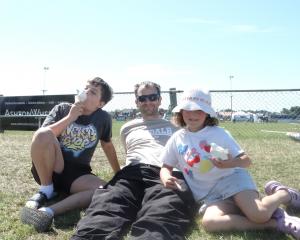
In a 55-page report released yesterday, deputy health and disability commissioner Dr Vanessa Caldwell found Waitaki District Health Service Ltd, a doctor and two nurses breached the Code of Health and Disability Services Consumer’s Rights.
Dr Caldwell’s report described "a nightmare scenario for a lone generalist rural doctor", who performed admirably initially when the baby was brought to the emergency department at Oamaru Hospital at 2.05am, with vomiting and fever, in 2019.
However, a subsequent string of breakdowns revealed a lack of reasonable care and skill on several fronts, including the process in place at Oamaru Hospital for the transfer of a critically ill infant, the report said.
Despite being transferred to a larger hospital nearby, the baby’s health deteriorated on the way and he died six days later from meningococcal sepsis, Dr Caldwell said.
Waitaki District Health Services chief executive Keith Marshall said yesterday the organisation accepted the deputy health and disability commissioner’s investigation and recommendations completely.
"This is just a horrible, horrible thing for the family.
"Our hearts just go out to them," he said.
"This is a truly awful set of circumstances. Nobody — nobody — wanted this outcome."
After Waitaki District Health Services’ initial response to recommendations, the health and disability commissioner came back and wanted follow-ups, which were also done, Mr Marshall said.
He said it would be inappropriate to say whether the staff were still at the hospital, noting "there’s a reason for anonymity in these things".
However, he appreciated the need to examine these incidents so lessons could be learned.
"That’s what the check and balance in the system is for — and their report is comprehensive in every way."
When the baby first arrived at the hospital, he was seen by two nurses who allocated a triage score of three to the infant patient.
Within minutes, this score was revised and it was determined the baby needed to see a doctor immediately.
The young child had a fever of 39°C, a pulse well above the normal range at 209 beats per minute, and a respiratory rate of 50 breaths per minute, also well above the normal range.
The child’s Paediatric Early Warning System (PEWS) score, which identifies patients at risk of clinical deterioration, was not calculated.
When the doctor was called, he immediately identified the baby needed to be transferred to another hospital, but his focus was on treating the sick child and stabilising him.
Then, against the advice of other staff, the doctor made what independent adviser Dr Johan Peters called a "poor decision" to use an ambulance to transfer the baby, as opposed to a helicopter.
The request for an ambulance, by one of the nurses, was then noted as an "ASAP inter-hospital transfer" not an "emergency transfer", which resulted in a delay of 40 minutes, the report said.
The emergency department at the larger hospital was not notified and was not expecting the baby’s arrival.
A junior nurse accompanied the child on his transfer and on the way to the second, un-named hospital his condition deteriorated significantly.
He was subsequently flown to a children’s hospital where, six days later, the decision was made to re-focus care on simply easing his pain.
"Sadly [the boy] passed away," Dr Caldwell said.
Yesterday, she acknowledged changes made by Waitaki District Health Services and noted the health services provider had taken seriously its responsibility to provide all staff the necessary equipment and training to help their decision-making.
In his independent advice Dr Peters said the case showed an "urgent need" to establish a centralised, standardised patient transfer system.
Dr Caldwell called on Te Whatu Ora Health New Zealand to consider the suggestion and report back within six months.














